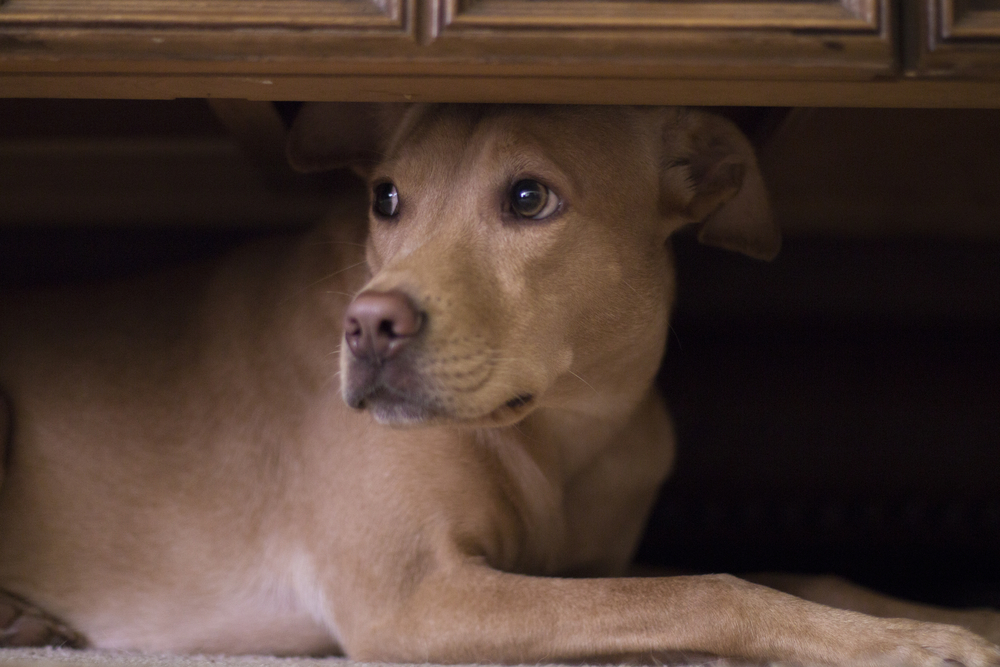News
How to help calm an anxious dog

Researchers suggest that almost 75% of dogs in the UK display behaviours indicating anxiety – that’s around 8.8 million! This behaviour can be triggered by a range of factors- differing with every dog. So, what can a pet owner do when their pooch is suffering with anxiety?
It’s important to understand the different symptoms of anxiety in dogs before taking action. Some key things to look out for are:
- Shakes and tremors
- Constant Pacing
- Closed/ tensed mouth
- Loss of appetite
- Hypervigilance
- Yawing profusely
Some physical signs to look out for are:
- Large pupils
- Drooling/large amount of saliva
- Raised heart rate
- Constant grooming
Once you’re aware of the signs, you can learn different ways to help calm them. Such as…
Music therapy
Tail or no tail, music can lift the mood in seconds. Each note, drum and piano key can relieve your pooch’s stress and anxiety. So, you can create a relaxed atmosphere and make your dog feel more at ease by introducing music they like. When encouraging relaxation with your dog, play a variety of music genres and observe which one they react best to. You can then create a playlist of songs to ease their anxiety and have a reliable solution when you next notice them becoming anxious. Did you know the best song genres known to help anxious dogs are classical and soft rock?
TIP: If your dog suffers from separation anxiety, don’t only play music when you leave your home. As this may result in a negative association. Instead, introduce music in your home throughout the day, incorporate tasty treats, and lots of cuddles so your pooch feels more at ease.
Reflect on your own emotions
Has your dog ever snuggled up to you when you’re feeling sad? This is because dogs are sensitive to human emotions and have a great talent for observing. They can tell how you’re feeling just by reading your body language and facial expressions. However, dogs can sometimes absorb their owners mood and if you tend to suffer with anxiety yourself, it can start to rub off on your pooch. So, next time you’ve had a stressful day at work, remember that how you choose to manage the situation can have an effect on your four-legged friend’s well-being.
Create a safe space
Put yourself in your pooches paws. When you feel overwhelmed, it’s normal to look for a place you feel comfortable in. Is there a certain area in your home your canine friend loves? This could be their crate, under your bed, at the side of the settee or even in the bathtub! Make your furry friend’s safe spot extra special by adding comfortable blankets, pillows, or any of their favourite toys. Having a secure environment where they feel it’s safe to let their guard down lifts an immense weight off their paws. This can decrease their anxiety and stress throughout the day and make your dog feel more composed.
If you’re unsure where your canine finds most comfortable, pick a place in your home (preferably somewhere dark and quiet) and make it their haven. Every time your doggy chooses to go into that space, reward them with their favourite tasty treats so they start to understand that the area is their domain.
Physical contact
Physical touch is an effective, effortless way to calm an anxious dog. I mean, who is going to turn down a cuddling session with their best friend, am I right? Put your feet up and curl up with your four-legged-friend. Simply stroking your dog whilst they snuggle next to you can be enough to help them relax. Your pooch will enjoy the simplicity of your company and have a positive focus on your touch – this distracts them from any anxieties they may have.
However, not all dogs are the same. It’s important to understand your dog’s boundaries, so forcing physical contact may not be the right solution for your furry friend. Try out different ways to physically connect with your dog like belly rubs or strokes and see what best suits them.
When it comes down to it, there are many ways you can support your four-legged-friend when they’re facing anxiety. Introduce the following into your home and see how your pooch improves!
